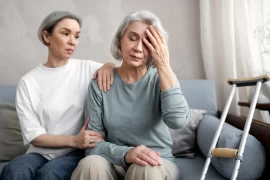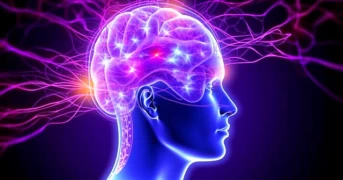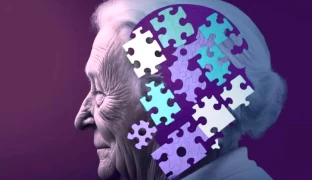Parkinson's Disease
- Parkinson's Disease
- What is Parkinson's Disease?
- What Are the Symptoms of Parkinson's Disease?
- What Causes Parkinson's Disease?
- What are the Treatment Types of Parkinson's Disease?
What is Parkinson's Disease?
Parkinson's disease is a chronic neurological disorder that results from the loss or deterioration of dopamine-producing neurons in the brain. Dopamine is a chemical messenger in the brain involved in movement control and sensation.
What Are the Symptoms of Parkinson's Disease?
Symptoms of this disease usually begin gradually and may worsen over time. Symptoms in Parkinson's disease are often related to movement control.
The most common Parkinson's disease symptoms are:
- Tremor: It usually occurs in the hand, arm, leg, jaw or head and increases at rest. However, it usually gets lighter during movement.
- Slow movements: People with Parkinson's may have to spend more time and effort on their normal activities. This may include simple activities such as walking, running, talking or eating.
- Muscle stiffness: A feeling of stiffness or tightness in the muscles slows down movements and makes ordinary movements more difficult.
- Imbalance: Parkinson's patients are often at risk of falling and may experience coordination problems in their movements.
- Movement restrictions: Parkinson's disease can cause movement restrictions on the face, hands, legs and other body parts.
- Speech problems: People with Parkinson's may experience speech problems such as lowering their voices, muttering, unintelligible speech, repetitive words, and prolonged silence.
- Sleep disorders: People with Parkinson's may experience sleep problems such as frequent insomnia, movement during sleep or talking during sleep.
- Depression: Parkinson's patients may experience emotional and behavioral problems such as depression.
- Loss of smell: People with Parkinson's may experience a decrease or loss of sense of smell.
Symptoms can vary individually and according to the stage of the disease. However, if a person notices any of the signs of Parkinson's disease, it is recommended that they contact a neurologist.
What Causes Parkinson's Disease?
The exact cause of Parkinson's disease is not yet fully understood, but research shows that several factors contribute to the development of this disease. The root cause of Parkinson's disease is a lack or loss of a neurotransmitter called dopamine in the basal ganglia region of the brain. This neurotransmitter is essential for the body's control and coordination of movements.
Some of the factors that have been suggested about the cause of Parkinson's disease include:
- Genetic factors: Parkinson's disease is a disease in which genetic factors play a role. Individuals with family members with Parkinson's disease are at increased risk for the disease.
- Environmental factors: Some environmental factors may increase the risk of Parkinson's disease. These factors include pesticides, herbicides, and toxins such as benzene.
- Age factor: Parkinson's disease is usually seen in people over the age of 60. However, it can also occur at younger ages.
- Other neurological diseases: Some other neurological diseases, especially neurological diseases that cause brain damage, can increase the risk of Parkinson's disease.
- Autoimmune factors: Some research suggests that autoimmune reactions may contribute to Parkinson's disease.
Although the exact cause of Parkinson's disease is not known, the interaction of the factors mentioned above may contribute to the development of the disease. However, none of these factors explain the exact cause of the disease and more research is needed.
What are the Treatment Types of Parkinson's Disease?
The treatments currently available for Parkinson's disease are aimed at controlling the symptoms of the disease and improving quality of life. The methods used in the treatment may vary according to the severity and symptoms of the disease. Treatment options for Parkinson's disease include:
- Medication: Medication is the most commonly used treatment to control the symptoms of Parkinson's disease. A number of drugs can be used, such as dopamine agonists, levodopa, MAO inhibitors, and anticholinergic drugs. These medications can help control a patient's symptoms and improve quality of life.
- Surgical treatment: In cases where Parkinson's disease progresses, some patients may be offered surgical treatment. A surgical method called deep brain stimulation (DBS) can be used to control patients' motor symptoms. In this method, a device is placed in the brain to deliver electrical impulses.
- Physical therapy: Physical therapy can help people with Parkinson's improve movement and balance. Physical therapy sessions may include exercises that help increase the patient's strength, flexibility and balance ability.
- Speech therapy: Parkinson's disease can cause speech and swallowing problems. Speech therapy can help patients improve their speaking and swallowing skills.
- Nutritional therapy: Parkinson's patients may experience swallowing and indigestion problems. Therefore, a proper nutrition plan can help patients control their symptoms.
Treatment of Parkinson's disease should be tailored to each patient's symptoms and needs. Therefore, anyone with Parkinson's disease should seek support from neurologists about treatment options.
In conclusion, Parkinson's disease is a chronic neurological disorder and can have serious implications. However, with early diagnosis and treatment, it is possible to manage symptoms and slow the progression of the disease.






